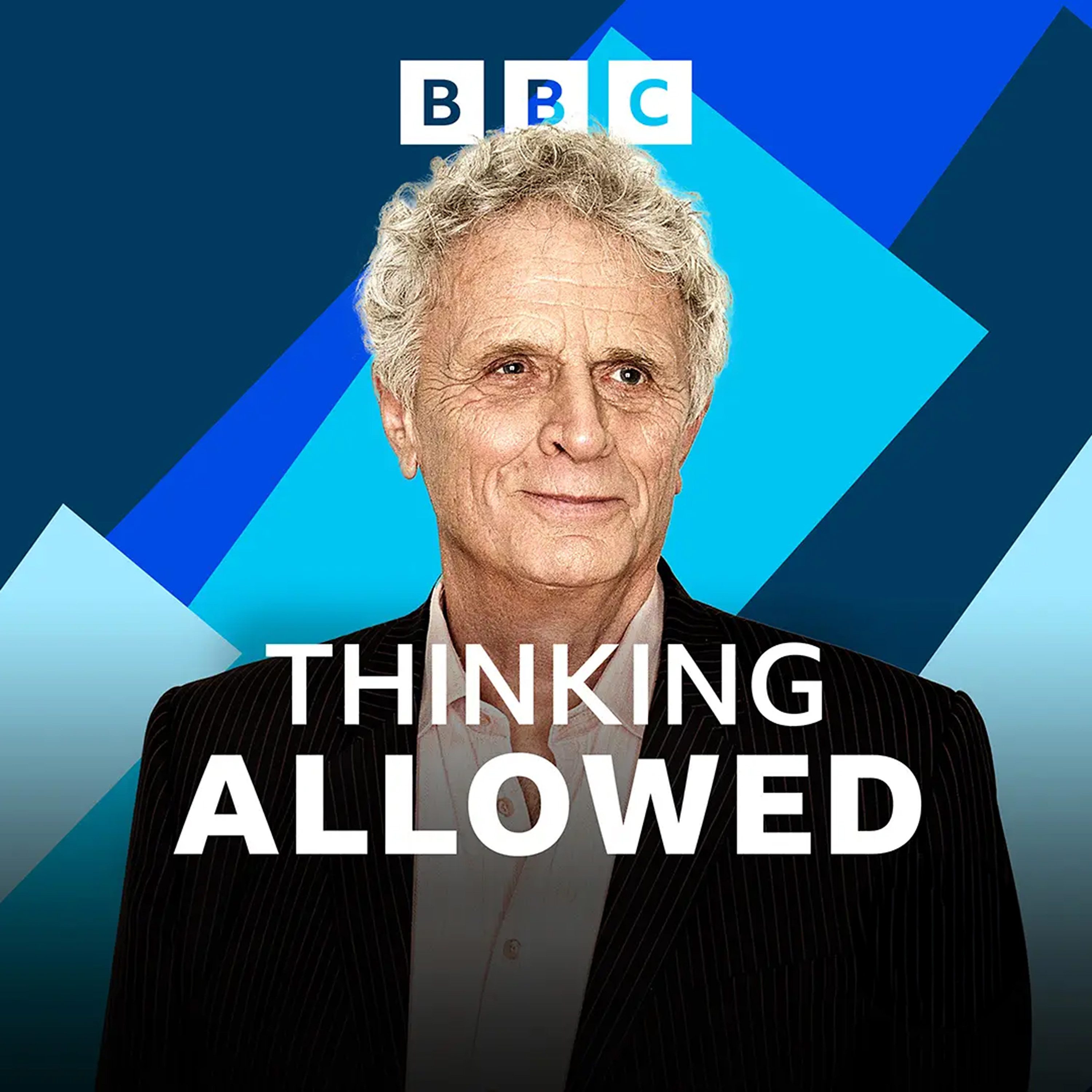

Thinking Allowed
BBC Radio 4
New research on how society works
Episodes
Mentioned books

Feb 26, 2020 • 28min
Citizenship
Professor of Sociology of Education, Carol Vincent, discusses how children are taught about 'fundamental British values' and the potential celebration of reductionist symbols of Britishness. Associate Professor David Bartram critically examines the UK citizenship test and its impact on immigrants' participation in British political and civic life. The podcast explores the challenges and implications of teaching fundamental British values in schools and controversies associated with representing British values.

Feb 19, 2020 • 29min
Loss
Loss: How should we understand the 'road not taken'? Laurie Taylor talks to Susie Scott, Professor of Sociology at the University of Sussex, about her study of lost experience - that vast terrain of things we have not done, that did not happen or that we have not become. Also, Tim Strangleman, Professor of Sociology at the University of Kent, reveals a lost world of paternalistic employment in which people enjoyed a well-paid job for life, free meals in silver service canteens, after work sports & theatre clubs & a generous pension on the horizon – the story of the Guinness Brewery in West London. Producer: Jayne Egerton

Feb 12, 2020 • 29min
Water
WATER – Laurie Taylor explores the cultural life of a natural substance. Sophie Watson, Professor of Sociology at the Open University, considers the taken for granted-ness of this vital fluid and the everyday connections it forges amongst human beings. They’re joined by Benjamin J. Pauli - Assistant Professor of Social Science at Kettering University in Flint, Michigan, whose study of the Flint water crisis describes the way in which “water warrior” activists have expanded the struggle for water justice, connecting it to a broader fight for democracy.Producer: Jayne Egerton

Feb 5, 2020 • 29min
Nudity
NUDITY – Laurie Taylor explores the cultural history of nudity and its impact on ideas about the body from the early twentieth century to the present. He talks to Sarah Schrank, Professor of History at California State University, about the unusual eras and locations in which it thrived - from Depression-era collectives to 1950s suburban nudist communities—as well as the more predictable beaches and resorts. They’re joined by Barbara Górnicka, Assistant Professor in Sociology at University College, Dublin, who asks why we find exposing bodies shameful and draws on her own participation in a nudist swimming club.Producer: Jayne Egerton

Jan 29, 2020 • 29min
Hidden gay lives
Hidden gay lives: Laurie Taylor uncovers the ‘fabuloso’ history of Polari, Britain’s secret gay language with Paul Barker, Professor of English Language at Lancaster University. He also talks to the cultural historian, James Polchin, about the ways in which 20th c American crime pages recover a little discussed history of violence against gay men, one in which they were often held responsible for their own victimisation. Producer: Jayne Egerton

Jan 22, 2020 • 28min
Borders
Borders: Laurie Taylor explores the control of national borders. He talks to Nira Yuval Davis, Director of the research centre on Migration, Refugees and Belonging at the University of East London and co-author of a new book which asks why borders have moved from the margins into the centre of political life and turned many ordinary citizens into untrained border guards. They’re joined by Jeremy Slack, Assistant Professor of Geography at the University of Texas, who charts the way in which Mexican deportees from the United States become the targets of extreme drug related violence upon their return to Mexico. Producer: Jayne Egerton

Jan 15, 2020 • 28min
The Power of Oil
The Power of oil - Laurie Taylor explores the role of oil in shaping our society, economy and environment. He talks to James Marriott of Platform, co-author with Mika Minio-Paluello of 'The Oil Road'. Their research took them from the oil fields of the Caspian Sea to the refineries and financial centres of Northern Europe. Timothy Mitchell, Professor of Middle Eastern Studies at Colombia University, joins the discussion, considering the relationship between democracy and oil. John Urry (1946-2016) also took part in the programme. He was Distinguished Professor of Sociology at Lancaster University and author of a book which pioneered a sociology of energy, analysing our carbon addiction in the light of ever dwindling resources and asking if an oil free society was possible or desirable. Sadly, John died several years after the programme was first transmitted. He had done more than most British sociologists to characterise the complexities of global society. Revised repeat.Producer: Jayne Egerton

Jan 9, 2020 • 28min
The 'Happiness Industry' - The 'Wellness Syndrome'
The Happiness Industry: Laurie Taylor talks to Will Davies, Professor in Politics at Goldsmiths, University of London, who asks why policy makers have become increasingly focused on measuring happiness. Also, 'wellness syndrome': Andre Spicer, Professor of Organisational Behaviour at City University, argues that visions of positive social change have been replaced by a focus on individual well-being. They're joined by Laura Hyman, Senior Lecturer in Sociology at the University of Portsmouth. Revised repeat.
Producer: Jayne Egerton

Dec 18, 2019 • 29min
Consuming passions
Consumer pleasures - Laurie Taylor explores the place of shopping in our lives, as well as within sociological thought. He's joined by Professor Colin Campbell, Dr Kate Soper and Professor Rachel Bowlby. Revised repeat.Producer: Jayne Egerton

Dec 11, 2019 • 29min
Love
A Thinking Allowed special on 'love'. What are the origins of our notions of high romantic love? Was the post war period a 'golden age' for lifelong love? Has marriage for love now failed? Laurie Taylor hopes to finds some answers with the help of the social historian, Claire Langhamer, the philosopher, Pascal Bruckner, and the sociologist, Professor Mary Evans.Revised repeat.
Producer: Jayne Egerton


